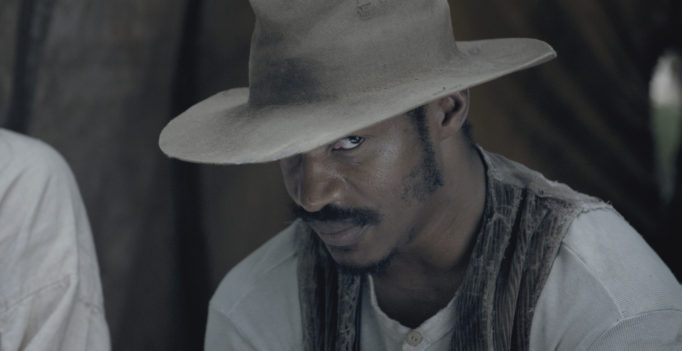Sometimes, it becomes difficult to separate an artist’s work from their personality; sometimes, this is because the artist has done something horrible and unforgivable. Director, writer and leading actor Nate Parker is one of those people: this is not the space to get into his actions, but I would recommend all uninformed readers to do their research before deciding if they wish to give him their money. With that out of the way, it became necessary to put in some hard work to separate the art from the artist. Thankfully, there is no need for difficulty, as Parker’s The Birth of a Nation is mediocre at best and regressive at worst. Either way, Nat Turner, one of the greatest historical American heroes, deserved much better than this unoriginal and two-dimensional ode to narcissism.
Parker tells the story of Turner’s slave revolt, which saw a group of slaves gathering and killing their slaveholders, at once setting back the rights of black Americans and providing inspiration for future black revolutionaries. Due to the story, there is certainly a great amount of black representation but the majority of the “representation” is of Parker, who is the only black person in the film to really have a personality, a name and a motivation. The other black actors exist merely as props to the actions of the star/filmmaker. The black women are treated even worse, with violence against them once again acting as just a plot progressing device. When compared to the black bodies, the white actors are actually given much more screen time, dialogue and personality. In other words, black bodies fill the screen, but it is merely quantity over quality. The Birth of a Nation is the ultimate act of narcissism with Nate Parker front and centre, showing the audience how good he is at everything he does.
Furthermore, there is no originality to this film. The slave narrative is already one that has been tapped, traditionally speaking, but this film is essentially a liberal mixture of the aesthetics of 12 Years a Slave and the content of Django Unchained, with a healthy dose of Mel Gibson tossed in (the cruelty of Passion of the Christ and the martyrdom of Braveheart), resulting in a film that has no real purpose in today’s world. There were also a lot of pacing problems, with the first act hurrying along to get to the point, the third act hurrying along to get to the end, and the second act somehow going nowhere very slowly.
Even worse, the tone-deaf nature of Parker’s film brings about some truly baffling choices. For starters, the aforementioned trivialized rape scenes – which are all the worse with the recent events surrounding the filmmaker. One scene that is even more baffling is a beheading scene, which only serves to turn the heroics of the rebels into terroristic characters: no matter who was in the right, the act of beheading has become a politically charged image with specific villainous connotations. Despite the cartoon character villains, this one moment somehow places the rebels on the wrong side of (modern) history.
There are still stories to tell of slavery and there may be new ways to tell those stories, but as long as people rehash what came before them, there will not be many worthwhile films made about it and there is a reason for that: slavery is firmly planted in the past. There are still plenty of awful injustices happening to the citizens of black America (and black Canada for that matter) and films about slavery serve to make the viewer forget about these injustices in a roundabout “look how far we’ve come” sort of way – positioning racism as a thing of the past.
If you wish to watch an innovative story about the struggles of black America, perhaps you might be better served to watch an older film like Melvin Van Peebles’ The Watermelon Man or a more recent one like Ryan Coogler’s Fruitvale Station. However, if you want a rehashed slavery tale full of stylized cruelty and empty bloodlust, you might be marginally enticed by Nate Parker’s The Birth of a Nation.
**********
Do You Tweet? Follow These Tweeple:
Shahbaz Khayambashi: @Shakhayam



Be the first to comment